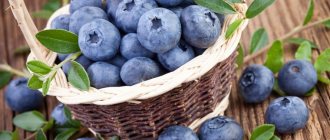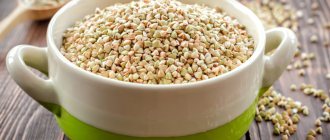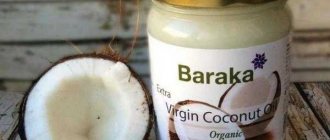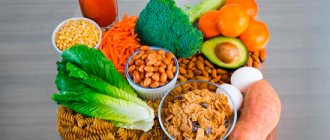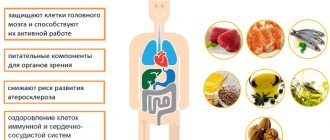Therefore, frozen foods are replacing them. But the attitude towards them is ambiguous. Many consider them empty: supposedly they do not contain vitamins and other useful substances.
Is this so and what are frozen vegetables and fruits, says doctor, candidate of medical sciences, healthy lifestyle specialist Andrey Beloveshkin .
Unfortunately, many people still have prejudice against frozen foods. Although frozen fruits and vegetables are now healthier than fresh ones. This became possible after the technology of shock freezing was invented at the beginning of the last century. Rapid exposure to low temperatures made it possible to produce frozen products of a fundamentally different quality. Firstly, it retains its taste. Secondly, beneficial substances are practically not lost.
Blast freezing technology
The technology of blast freezing has been known since 1925 and is quite successfully used today. Meat and fish products, as well as vegetables and fruits are frozen using this method. The peculiarity of the technology is that we have the opportunity to consume frozen products of a fundamentally different quality. Products that have retained their real taste and natural benefits.
Unlike a regular household freezer, where it takes at least 2 hours to freeze a product, blast freezing allows you to complete the task in 10 – 15 minutes. The pre-prepared product is passed through a low-temperature tunnel at -40 °C, which prevents damage to the product tissue. Those. all beneficial substances are preserved.
Therefore, when choosing frozen vegetables in the store, make sure that the package says “flash freezing” or “blast freezing.”
Vitamins in frozen vegetables
Despite the fact that many vegetables still undergo heat treatment before freezing (for example, broccoli, green beans, green peas), this has little effect on their vitamin profile.
Is fiber retained in frozen vegetables? Yes, it is saved. Frozen vegetables are easy to digest and do not overload the stomach. This is an ideal product for a therapeutic diet.
Let us also explain that many vitamins are somehow lost during the cooking process (in this case, it does not matter whether you bought fresh or frozen). For example, water-soluble vitamins B and C. This is why so many people prefer a raw food diet.
Frozen or fresh?
Oddly enough, frozen vegetables are often a higher quality product than fresh (relatively fresh). It’s one thing if you bought seasonal vegetables straight from the garden, for example, cucumbers or tomatoes “from your grandmother,” and quite another when you bought red, polished peppers in the supermarket, which lay on the shelf for two weeks waiting for a buyer.
The fact remains that store-bought fresh vegetables are not nearly as “fresh.” Transportation from the place of growth to the point of sale takes up to several weeks, so vegetables are cut long before they are ready and ripen on the way (or do not ripen at all). Vegetables for blast freezing are cut at their peak to ensure the best flavor.
If there are no vegetables from the garden, buying mixtures in bags is an excellent solution. Blast freezing has come a long way, and many frozen foods are barely distinguishable from fresh ones. For example, Brussels sprouts, black currants. Try them and see for yourself.
How to cook frozen vegetables?
The best way is steaming, in addition, vegetables can be cooked in the oven, in a slow cooker, or even in a simple frying pan with a drop of oil. There are a huge number of recipes for frozen vegetables on the Internet, but I don’t want to cook them. The most undesirable option is boiling or heating in the microwave (boiling only for soup).
Remember that you cannot defrost vegetables at room temperature before cooking - they will turn into mush. Therefore, it’s optimal to put it straight into a frying pan or into a double boiler. And in about 15 minutes you will receive a tasty and healthy dish, and, most importantly, beautiful. When prepared correctly, store-bought mixtures allow you to create real culinary masterpieces: stews, casseroles, omelettes. Frozen vegetable soup looks especially aesthetically pleasing thanks to its multi-colored cubes and circles.
Dishes made from frozen vegetables are suitable for those who do not like to cook a lot and for a long time, in addition, this is a budget-friendly way to supplement the diet with vitamins, and an ideal solution for winter, when fresh vegetables are too expensive or even unavailable. Frozen foods definitely outperform various canned vegetables that contain large amounts of salt, sugar and food additives.
Frozen foods in a fairly wide range appeared in our supermarkets relatively recently. And very soon they caused a lot of controversy around them.
Source: frozen_summer_ua
At first, frozen foods were perceived as a panacea for vitamin deficiency and a winter diet that was poor in plant foods. Then information appeared “exactly the opposite.” Let's try to find the truth.
Myth No. 1
Frozen vegetables and fruits contain less vitamins than fresh ones
Of course, there is always a loss of vitamins in frozen foods. But this conversation should not be general, but private. That is, you always need to understand what kind of vitamin we are talking about. If we are talking about vitamin C, then yes, it is lost. The amount of loss depends on the conditions of freezing, storage and thawing.
Home freezing is the most destructive. Industrial allows you to preserve most of the vitamin C, 75% of vitamin B1 (thiamine), from 80 to 95% of vitamin B2, vitamin A does not disappear due to freezing, but is lost during long-term storage, look at the date of manufacture of the product.
https://youtu.be/tEWnLewiQI8
Cons of frozen foods
The biggest disadvantage is that such products can only be defrosted ONCE. If products are re-frozen, especially fruits, the taste and original properties of the product are lost.
During emergency heating of frozen food (without the natural thawing process), the formation of harmful trans fats inside the structure is possible, but this only applies to all kinds of semi-finished products - pizza, burgers, khenkali and so on, which initially contained fats of vegetable origin (palm, corn or refined oil) during production ).
Myth No. 2
Frozen foods are not dangerous in terms of infections
Almost all bacteria and viruses retain their viability at low temperatures. Therefore, you should not count on the fact that all pathogenic microorganisms in the freezer have died. Industrial procurement rules provide for scalding of products, but this is not a guarantee of infectious purity.
Therefore, all frozen fruits and vegetables, at least those intended for a child, must be thermally processed. This is again a loss of vitamins. But the “villains” from the soil are a greater evil.
Myth No. 3
Frozen meat and fish are good!
No, this is just bad. It is these products that provide wide scope for the use of various technologies that are not beneficial to the body. These are, first of all, food additives, flavor enhancers, stabilizers and flavorings. Plus pieces of ice that are found on the surface of fish carcasses, inside them - for weight. It's a shame to pay for frozen, not very clean water, like for sea fish, right?
The main source of vitamins for us will always be vegetables and fruits. And if in the summer it is not a problem to saturate your body with vitamins, then in the winter vitamin deficiency awaits us. Not everyone has access to live vitamins in winter. Fruits and vegetables become more expensive, sometimes several times. Therefore, there is a great demand for frozen vegetables. Many people are now arguing about the usefulness of “freezing”. Most people are interested in: Do frozen vegetables retain their beneficial properties? How useful are they as a source of vitamins? Is it possible to fully replace fresh vegetables with frozen ones without losing quality? How to choose the right quality “frozen vitamins”? Let's try to understand this issue.
1 489020
Photo gallery: Do frozen vegetables retain their beneficial properties?
Opponents of the use of preservatives of various kinds unequivocally state: fresh vegetables and fruits are much healthier than any frozen ones. And they are right! If you have your own garden and vegetable garden, then this is where the most useful gifts of nature grow. But if you are a city resident buying vegetables in a store. This statement is not so categorical. It is worth considering the conditions of transportation and storage of these products. Often the conditions are such that they reduce the beneficial qualities to nothing.
How is the freshness of vegetables and fruits determined? It is determined by the amount of vitamin C in the product. This vitamin is so fragile that after a couple of days of storage its amount drops significantly. For example, broccoli and asparagus lose up to 80% of vitamin C after two days of storage, and spinach - up to 75%.
Today, deep freezing of vegetables, fruits and berries is the only 100% natural option for canning. It allows you not to lose the taste and beneficial properties of products. The time between picking vegetables and freezing is very short, so frozen vegetables and berries are a healthy product.
How is freezing done?
The main principle of quick freezing of vegetables and fruits is to reduce the temperature of the product from its surface to the core. The juice of vegetables and fruits at a certain point turns into tiny ice crystals. Modern technologies can quickly bring the temperature inside the fetus to the desired -18 degrees. This temperature is the same throughout the entire freezing process. Therefore, in the cells of the fruit, ice crystals are formed uniformly, without disturbing the structure of plant fibers. The faster vegetables are frozen, the less damage to the fibers. Such vegetables and fruits retain almost all their beneficial properties, not differing much in the degree of usefulness from freshly picked ones.
If the freezing was not quick, then the ice crystals increased, destroying the structure of the fiber and, as it were, dehydrating the fruit. Such vegetables are no good after defrosting. Therefore, it is not recommended to defrost vegetables and fruits in advance.
If the package says “Instant freezing”, then it is a healthy product. You can safely buy these “frozen vitamins.”
Any fresh fruit will benefit most from its consumption when it is first picked. These are seasonal products. Then they are frozen. This means that by choosing a “fresh” vegetable instead of a frozen one, we get fewer vitamins.
Another objection that opponents of frozen vegetables have is its price. Frozen vegetables are more expensive than fresh ones. Especially when compared with prices during the harvest. But in winter, this difference is no longer so noticeable. Frozen vegetables have no waste and are washed and cut. This saves us money and time.
There is an opinion that dyes are added to frozen vegetables and fruits. But their color is actually so vibrant because they are steamed or boiled before freezing to preserve color and nutrients.
Thanks to deep freezing technology, we can enjoy the gifts of nature all year round.
Who benefits from this?
- For city residents who do not have their own gardens and gardens. City dwellers suffer from a lack of vitamins even in the summer, and even more so in the winter.
For those who are on a diet. In 5-10 minutes you can prepare a healthy dish.
People with weakened immune systems. After all, these vegetables are processed before freezing, and the remaining bacteria are killed by cold.
For those who have no time to waste time fiddling around the stove: businessmen, students, young mothers. And everyone who just doesn’t like cooking.
And also for those who love to cook and create culinary masterpieces. After all, such vegetables can be added to stews, casseroles, soups, meat dishes, vegetable pilafs and other culinary delights.
For vegetarians. Nowadays it is very fashionable to be vegetarians, but in our climatic conditions it is very difficult to get the right amount of nutrients for the body.
How to choose frozen vegetables?
- Try to buy products from well-known manufacturers.
Be sure to read the preparation method and shelf life on the packaging.
Vegetables should crumble in the package. If there are frozen lumps there, it means they have already been defrosted.
Now you know whether frozen vegetables retain their beneficial properties.
Text: Irina Sergeeva
Frozen vegetables and fruits... we love them, to be honest. It's convenient, it's nutritious... Or not? Let's figure out how frozen fruits, vegetables and berries are healthy or, conversely, harmful...
Frozen fruits and vegetables | benefits of frozen foods
Freezing kills vitamins by only 10-25%. And if a fresh product has been in the store for more than one day, then its beneficial properties become even less. For example, vegetables such as spinach, broccoli and cauliflower can lose up to 70 percent of their vitamin C and many other beneficial properties after two days of storage. This is where freezing has a clear advantage.
Fresh foods lose their beneficial properties many times faster than frozen foods.
When fruits are brought to us from other regions, they are picked unripe. Otherwise, they may not arrive and get spoiled. Unripe fruits ripen during transportation and in store displays. This significantly extends the shelf life of the product.
But such fruits did not have time to absorb all the necessary beneficial elements from the soil. The product looks ripe, but it was picked green, and the loss of vitamins is very large. Here again freezing has a significant advantage. In most cases, fruits for freezing are picked when they are ripe, when they contain the maximum amount of useful substances.
Also, in order to extend the shelf life, manufacturers often treat the product with all sorts of chemical preservatives, which is not at all useful. When a product is frozen, this is not done, because a frozen product will not spoil anyway.
Nowadays, manufacturers mainly use fast, so-called shock freezing, at a very low temperature. With such freezing, the maximum useful and taste qualities remain in the product.
Almost all harmful bacteria die in frozen foods. Therefore, if you eat a product after freezing, the chance of getting poisoned is much less than when eating a fresh product.
If you want to preserve the harvest from your garden or garden for a long time, then freezing is the only right solution that preserves all the vitamins in the product as much as possible.
All of the above also applies to meat and fish. If freshly caught fish is not cooked immediately, it can spoil within a few hours. There are only two options: either pickle it or freeze it. It’s the same with meat; chilled meat can quickly begin to decompose.
Frozen vegetables and fruits - in winter it’s a definite “yes!”
Russian people are sometimes suspicious. Same with frozen vegetables and fruits.
- Is it true that these were not spoiled vegetables that were frozen? Is it true that they are not harmful? Is it true that they still contain at least some vitamins?
There has been a long-standing debate about whether frozen fruits and berries are harmful or beneficial. There are studies showing that frozen foods not only keep up with fresh foods in terms of nutritional value, but in some cases surpass them. Critics of the product claim that the frozen and even packaged product does not inspire confidence. Everyone decides for themselves, but we will give a few facts.
It's summer, and when we can buy a really fresh product, we should take advantage of this opportunity. There can be no talk of any frozen products as long as there are “live” apples, cherries, and cucumbers on hand. But winter is coming. You can buy berries grown in greenhouses, but you can also buy frozen ones. Which ones to choose in winter? Critics and frozen food advocates agree that produce produced and frozen in the summer is healthier than “artificial” winter fruits and vegetables.
Judge for yourself - only fruits of the highest quality are selected for freezing. Yes, then they are thoroughly washed, cleaned and pre-processed (crushed), packaged and frozen. But these are top quality products. In winter they are better than other “freshly imported from Australia”.
Can I eat frozen vegetables?
Eating frozen vegetables is one of the simplest and most cost-effective ways for the body to obtain important vitamins, minerals, and trace elements during the winter.
In the age of technology, we can safely say that frozen vegetables are sometimes much healthier than vegetables bought in stores. Numerous studies also speak about this.
Can you eat frozen vegetables?
Frozen vegetables and fruits - the cold is all over the head
It has long been known that there is no better preservative than Father Cold. It is able to preserve the best qualities of the product. But you can freeze it in different ways. What freezing methods exist and which method is better for the consumer?
The classic method of freezing is at a temperature of minus 30-40 ° C using low-temperature liquid or cold air. At the same time, the water contained in the cells does not have time to organize into large ice crystals that destroy the cell membranes. As a result, the products remain intact.
There is also a more modern method - cryogenic or shock freezing at temperatures below -60°C. Such a product is practically not inferior in nutritional value to fresh.
But even just a consumer knows that it is not so important how it was frozen, it is important that it is not defrosted during transportation, so that the product does not get into the heat. The re-frozen product is no different in appearance from the original one, but its vitamin value and usefulness are not at all the same. What should I do? Fortunately for you and me, some manufacturers put special paper indicators in the packaging of fruits. The juice of the food causes it to change color and thus warns that defrosting has occurred.
Frozen vegetables and fruits - which ones to take?
Some berries, vegetables and fruits lend themselves better to freezing and tolerate it better than being collected on branches and beds. So, from berries - these are strawberries, wild strawberries, cherries, raspberries, currants, cherries, gooseberries, and wig. The best vegetables for freezing are green beans, sorrel, bell peppers, eggplants, tomatoes, cauliflower, and carrots. Fruits: apricots, plums, pears, peaches, grapes.
If you are going to use berries and fruits for baking or compotes, then it is not necessary to defrost them, especially since they will cook faster if frozen. To prepare vegetables, it is advisable to use a minimum amount of water or steam them, then they will retain the vitamins as much as possible.
The climatic conditions in which we live do not allow us to enjoy freshly picked vegetables and fruits all year round. Therefore, in the off-season we have to be content with imported or frozen fruits. Which ones are preferable? Some believe that there is no benefit from frozen vegetables and fruits, while others, on the contrary, are convinced that these products can be a real salvation for the body. Let's try to figure out how things are.
How to use the properties of frozen foods to your advantage?
If you prefer to use frozen vegetables, then you should remember the need for careful storage and proper use of the products. After purchasing, it is better to immediately go home to defrost the goods. They should, of course, be stored in the cold. As already mentioned, do not give in to the urge to defrost vegetables before cooking.
In general, it cannot be said that frozen vegetables are particularly healthy or overly harmful. How they affect the body depends largely on the manufacturer and consumer. Therefore, it is best to buy a product from a popular brand that will not allow its reputation to suffer, therefore, its product is truly high-quality and harmless.
Historical reference
In general, the idea of freezing food did not arise yesterday: residents of northern countries have long preserved freshly caught fish in this way. It was laid out on ice; under a strong icy wind, the catch quickly froze and could be stored for a long time (in the cold, of course). American inventor, entrepreneur and naturalist Clarence Frank Birdseye, while on an expedition to the Canadian Labrador Peninsula in 1912, drew attention to this method of preserving food and decided to test it in action upon returning home to New York. Birdseye made artificial ice and conducted a series of experiments. The scientist discovered that when frozen slowly, large ice crystals form in food, which destroy tissue, and after thawing, the taste of such food leaves much to be desired. But if cooling occurs quickly, the quality of the product does not suffer. Birdseye acquired a patent for his invention, sold it to General Foods for $22 million in 1929, and the first frozen vegetables appeared in stores in 1930.
The benefits and harms of frozen vegetables
Frozen vegetables should be talked about more from a positive point of view.
With modern freezing methods, vegetables retain almost all their positive properties.
Very little time passes from the moment of harvesting to freezing - this is in the interests of the producer. Otherwise, the product will lose its appearance and even when frozen, it will be clear that it is spoiled.
IMPORTANT: When buying frozen vegetables, still pay attention to the composition. In rare cases, to preserve the appearance and add brightness to vegetables, manufacturers resort to the use of food additives.
Short harvesting times for vegetables guarantee excellent preservation of products.
However, frozen vegetables can also be harmful - but only if they have been frozen two or more times. When thawing, vegetables may simply go bad.
The benefits and harms of frozen vegetables
Vegetables are “shocked”
Just a few decades ago, producers simply placed the fruits in a huge freezer for several hours. Nowadays they use another, faster method called blast freezing. It allows you to preserve the maximum amount of valuable nutrients in vegetables and fruits, mushrooms and berries, as well as their taste and attractive appearance. The fruits are placed in chambers with a temperature of minus 35–40°C and blown with streams of cold air for 20–30 minutes. In this way, vegetables and fruits are frozen very quickly, small ice crystals are formed in them, which do not destroy the tissue structure.
Isn’t it better to freeze the fruits of the summer harvest at home, you ask? Let us answer directly: no, not better. The fact is that household freezers cannot provide the necessary conditions for rapid freezing. The temperature will drop gradually, the juice will turn into large ice crystals, cell membranes will be damaged and the lion's share of nutrients will be lost.
How to freeze vegetables at home?
To freeze vegetables at home you will need:
- Vegetables
- Packages and containers
- Refrigerator freezer
- A little time
To begin, before freezing vegetables you should:
- Wash the vegetables, dry them, remove the stems, cores, seeds, and, if necessary, peel and seeds.
- If necessary, cut into small pieces, divide into inflorescences, etc.
Chopped Vegetables
Tips for freezing vegetables at home:
- Cauliflower and broccoli should be divided into florets
- Carrots can be cut into slices, strips, cubes
- Peppers peeled from tails and seeds can be cut into cubes, strips, or stored as a whole. Whole peppers can be used for stuffing. It is better to store them by folding them one in one
- It is still better to freeze white cabbage in the form of rolled cabbage rolls
- Green beans should be cut into two or three parts
- Tomatoes can be frozen whole, especially cherry tomatoes, or they can be cut into slices or cubes. A good option would be to freeze tomato puree by first chopping the tomatoes and then placing the mass in ice storage molds or cups. After freezing, the puree can be removed from the mold and transferred to a bag.
- Young cucumbers are cut into any shape; they can be useful for salads
- Before freezing, eggplants should be cut into slices and sprinkled with salt to remove the bitterness. Then you should wash off the juice and blanch. Baked eggplants are also frozen
- You can make an assortment - packing a mixture of vegetables into bags to prepare your favorite dishes
- The greens are frozen after washing, drying, cutting and placing them in bags. You can freeze the greens in ice trays by placing them in compartments and pouring, for example, olive oil to make an excellent salad dressing.
The process of freezing greens
You can freeze vegetables with or without preliminary blanching.
Some experts argue that without blanching, vegetables, even at the lowest temperatures, are able to ripen and change their structure and appearance. And only bell peppers and onions can be frozen without hot processing. You should also avoid pre-cooking broccoli, which is a very fragile vegetable.
Blanch vegetables as follows:
- Place water in a saucepan and bring it to a boil. Take a saucepan large enough to fit a colander in it.
- Place pre-prepared vegetables in a colander
- Place a colander with vegetables in boiling water
- Cover the pan with a lid
- We wait the required amount of time
Frozen or fresh?
Now let's return to the dispute we outlined at the very beginning. So which vegetables are healthier: fresh or frozen? If by “fresh” we mean those collected at your dacha, they are undoubtedly better than store-bought ones. But with stores, the situation is different. According to recent studies by both our and foreign scientists, frozen vegetables contain significantly more nutrients than their “fresh” counterparts coming from countries of “eternal summer”. When frozen, fruits lose less vitamins and minerals than during long-term transportation. In addition, it is no secret that vegetables and fruits (usually unripe!) are treated with all sorts of chemicals before being sent on a long journey so that the food does not spoil.
However, not everything is so rosy with frozen fruits. They may contain both dyes (which unscrupulous people write about on the label) and GMOs. How critical this is - judge for yourself. This is what Andrey Mosov, head of the expert department of NP Roskontrol, a doctor, told us:
Theoretically, GMOs may appear in mixtures that include vegetables for which genetically modified analogues exist and are cultivated on an industrial scale: soybeans, corn, potatoes, tomatoes. These ingredients are most likely to be found in mixtures containing soybean sprouts or corn. There is nothing wrong with this, but the manufacturer is obliged to disclose the presence of GMOs in the product labeling. Much more important for the consumer is information about the nutritional value, botanical variety of a fruit or vegetable crop and the region of its growth. Indication of such information in the labeling always speaks in favor of the manufacturer, being an indirect sign of his good faith.
Can a child eat frozen vegetables?
Whether or not to give frozen vegetables to your child should be decided by the parents themselves.
When properly frozen and stored, vegetables should not harm your child’s health; on the contrary, they will serve as a source of vitamins and minerals.
When choosing frozen vegetables in stores, pay attention to the quality of the product - its color, shape, packaging. It is also important to pay attention to the manufacturer.
Frozen vegetables for children
According to the advice of parents, when it comes to complementary feeding, you should initially select vegetables for yourself, try them, and only then offer them to your child - this will help avoid unpleasant incidents in the form of rashes, etc.
Frozen vegetables can be boiled, fried, or stewed. When preparing dishes for your child from them, remember that they will contain the most useful substances after boiling, especially after steaming.
IMPORTANT: Do not salt vegetables at the beginning of cooking - they will lose their nutrients faster. It is better to use salt towards the end of cooking.
Remember that with prolonged cooking, as well as with prolonged defrosting, vegetables very quickly lose their appearance - this is sometimes an important point in preparing dishes for picky little ones.
Child eats vegetables
Choose wisely
If we are talking about frozen fruits in packaging, then preference should be given to well-known brands - they care about their reputation, so they are more attentive to the selection of raw materials and control at each stage of production.
The temperature of the freezer where the fruits are located should be no more than –18°C. If bags of vegetables, fruits or berries are covered with frost, it means that the temperature regime is not being maintained, which, again, affects the quality of the product.
Feel the packaging (it should be intact, without tears or scratches). If you feel ice blocks at hand, refuse to purchase: such a product has been defrosted and re-frozen, which means you will not get any pleasure or benefit from such vegetables and fruits. The labeling must contain complete information about the contents and manufacturer, composition, freezing method (it is better to choose quick-frozen or blast-frozen), as well as the presence of GMOs.
Is it worth purchasing loose frozen vegetables, fruits, and berries? It is difficult to answer this question unambiguously. On the one hand, in this case you clearly see what you are going to buy. On the other hand, unfortunately, it is impossible to be sure of the freshness of products of this kind, even if tags indicating the date of packaging are attached to the trays.
And finally, let’s note that you should purchase frozen vegetables before you get ready to go to the checkout. It’s better if they “arrive” home in a cooler bag. And immediately put frozen food in the freezer! At a temperature of –6°C they can be stored for 1–2 weeks, at –12°C for 4–6 weeks, and at –18°C for up to 1 year.
conclusions
Now you know everything about frozen fruits and vegetables, what are the benefits of freezing and what are the harms from it. With proper quick shock freezing, products will retain maximum beneficial properties and vitamins.
Don't be afraid of frozen foods; in most cases they can be of better quality than fresh ones.
In fact, frozen fruits and vegetables can only be outperformed by ripe ones fresh from the garden. But in all other cases, freezing has only a big advantage.
That's all. Write in the comments if you agree with my opinion? Subscribe to my notes, there will be many more interesting things! And don’t forget about the competition, conditions are below!
How and what to cook
Remember that frozen vegetables should not be washed. And there is no need to defrost them before cooking. The best way to get a truly healthy dish is to quickly boil the vegetables in a little water or steam them. Immerse them in boiling water while frozen and season them just before eating. You can simply season the vegetables with salt and pepper, pour over vegetable or melted butter, one sauce or another, sprinkle with grated cheese or chopped herbs.
If the dietary option of cooking vegetables is not for you, use your imagination! Frozen Brussels sprouts, for example, can be stewed with pork or chicken. Broccoli and cauliflower - roast or bake in a creamy sauce. Green beans, corn, and peas are great for preparing first courses. By the way, all the above-mentioned vegetables can be supplemented with fresh ones to give the dishes a brighter taste. Well, frozen berries and fruits can become the basis for an incredible number of desserts or drinks.
